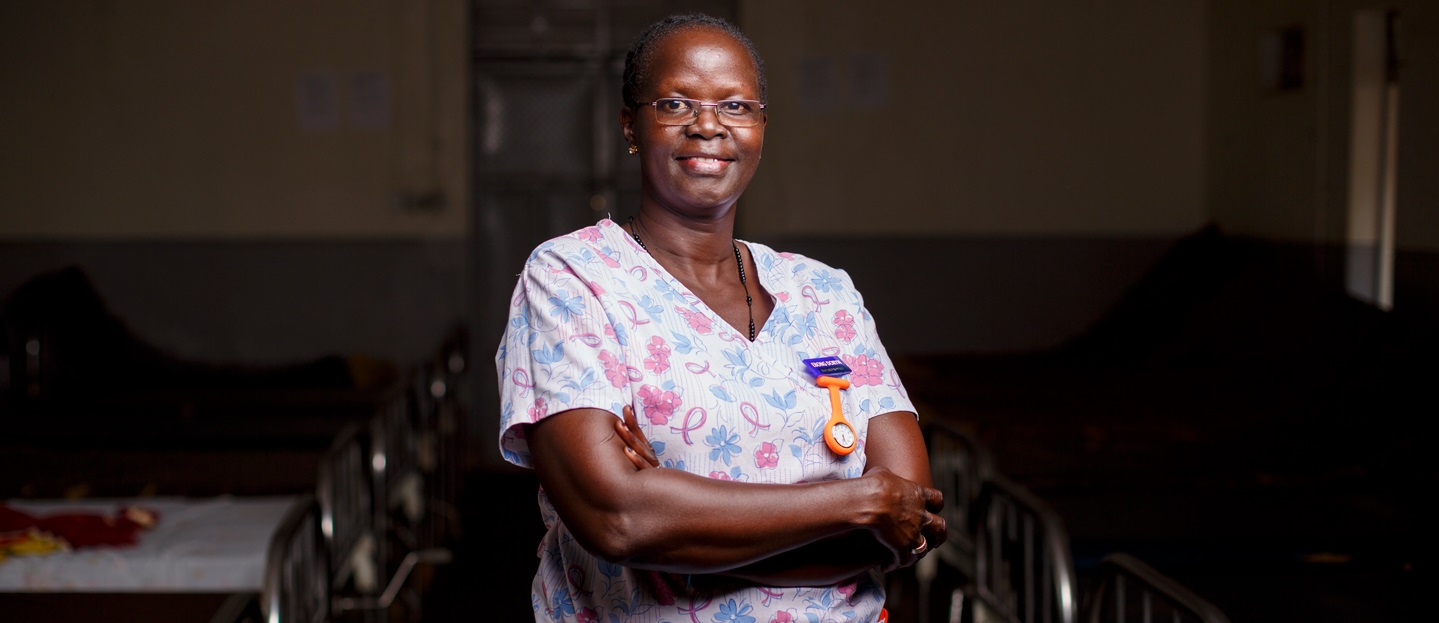
Realizing sustainability in health systems strengthening through our Global CSR Program

Photo credit goes to Seed Global Health
October 11, 2022
In the lead-up to the 77th session of the United Nations General Assembly (UNGA), our Global CSR (Corporate Social Responsibility) Program convened partners, colleagues and industry experts to unpack solutions for health systems strengthening.
As part of events surrounding the UNGA, we hosted a virtual event, “Where do we go from here? Realizing sustainability through advancing DE&I in health systems strengthening.” The webinar spotlighted the work of our partners, Bridges to Development, Pathfinder International, and Seed Global Health, and explored the ways to realize healthcare sustainability in unique ways across the globe.
A turning point: Focusing on how—not what
“We are at a truly existential moment in time,” opened Dr. Vanessa Kerry, CEO of Seed Global Health. “The inequity, exacerbated by the [COVID-19] pandemic, is rooted in history, in culture, in racism, in a number of old socioeconomic systems that we need to be accountable for”. Vanessa set the stage for a discussion by recognizing that sustainable impact takes time and requires out-of-the box thinking. “We will need to think about how we do things differently, how we challenge the status quo to make sure we're investing in sustainability. We often talk about what is needed, but we don't talk about how we work,” she noted.
Business as usual is no longer the norm
For Dr. Tabinda Sarosh, Pathfinder International’s President for South Asia and the Middle East, the “how” starts with building health system resilience, especially in low-resource setting prone to natural disasters. Tabinda explained that to help the affected populations and prepare them for ever changing challenges, it’s crucial to position them as change agents and ensure access to equitable health services.
“We are channeling insights from the communities and looping them back into the systems, as well as facilitating women's agency to access health services to work with each other in a peer modality to local resource management, and at the other end with the health systems rethinking capacity. It’s not businesses-as-usual. Today, when we talk about health systems resilience, we are talking about regular major disruptions, not just one-off crisis situations.”
Leveraging local knowledge as change driver
Dr. Alan Brooks, managing partner at Bridges to Development, built on the importance of community and integration to strengthening health systems. “We started the planning process for our partnership with Takeda by discussing what is most respectful of community members and their time, what really meets their needs, and where they want services to be. And this brought us to an integrated approach: targeting five diseases and integrating the services around those into one portfolio and set of activities.”
When it became clear how immense existing knowledge within the health systems was, Bridges to Development shifted training and capacity development approaches toward strengthening a peer-to-peer network that relies on and builds upon the experience of the existing health workers. Health workers then created their own plan for how to scale up activities across the network. “That intrinsic motivation and local knowledge really can be a powerful driver for change and for amplifying the right voices to sustain health services, even in fragile settings.”
Amplifying the right stories
Ms. Esther Nakkazi, science and technology reporter and founder of the Health Journalists Network of Uganda, talked about the importance and challenges of highlighting the stories of leaders in health equity and inclusivity on all levels: global, national, and local. “We as local people, as Africans, as journalists, must push for investment in health systems strengthening. It’s good that donors are funding programs, but we need to push our governments and ourselves to also invest in health systems so that they work sustainably,” she noted.
Esther also emphasized the essential role of data in measuring the success of initiatives focused on health system strengthening. She said, “Data has to be up to date and aligned to a common value that everybody understands. We need things that are consistent, measurable and that bring us to a common goal.”
Watch the full webinar recording
We’re looking for partners for our FY2023 Global CSR Program
Our Global CSR Program demonstrates the company’s ongoing commitment to strengthening health systems and improving access to health care in developing and emerging countries. Every year we actively seek partners with proven track records of addressing global health problems in innovative ways, aligned with locally identified needs. Learn more about how you can partner with us and our FY2023 request for proposals (RFP) process here.